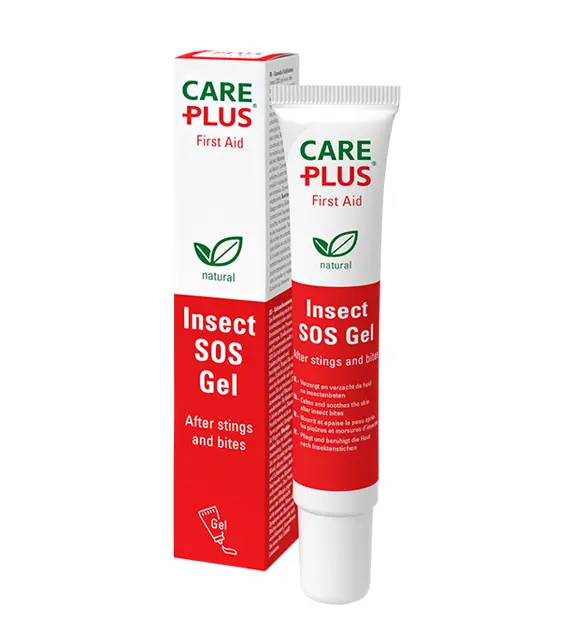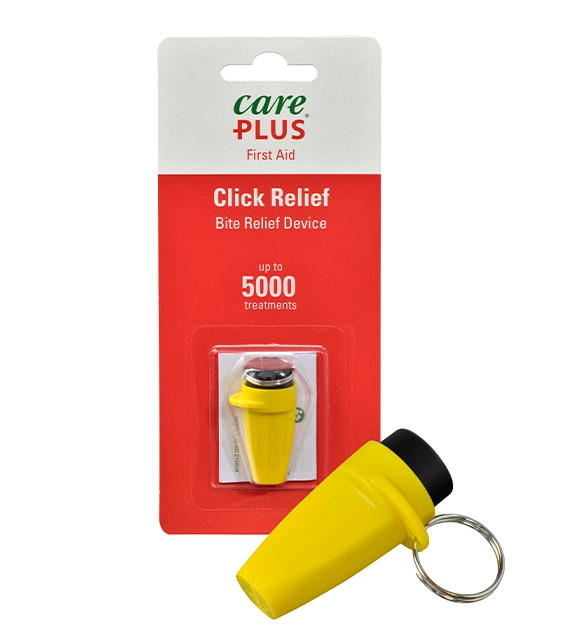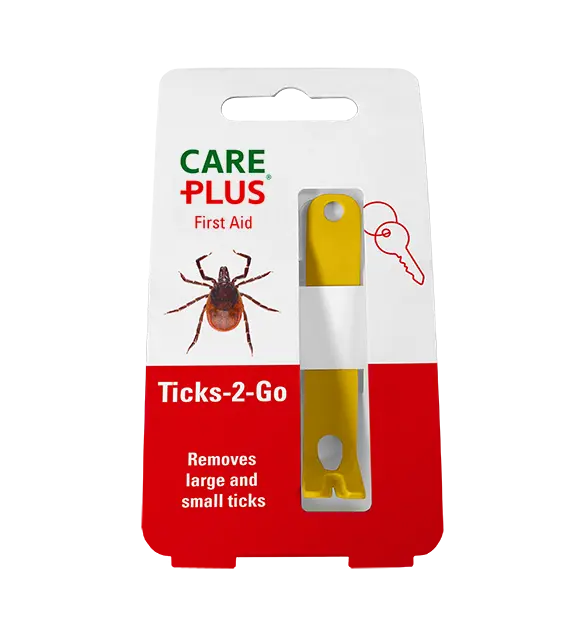Treatment after an insect bite or sting
Sometimes you don’t even notice an insect bite, but some insects can cause pain, swelling, redness, irritation, and itching. The bite or sting of other pests can also be quite painful. It’s important to get the right treatment after an insect or tick bite. You can often take steps yourself to relieve the pain or itching.
If you don’t take enough precautions to prevent bites or stings, you could end up getting an insect bite. Think of mosquitoes, spiders, and ticks, but also jellyfish or scorpions. Even after taking the necessary protective measures, this can still happen, but the risk of a bite or sting is much lower.
Fortunately, Care Plus® offers effective products that can help you treat a bite or sting. Not only insects, but also jellyfish can sting uncomfortably with painful consequences. In the event of a tick bite, it is also essential that you are alert and ensure appropriate treatment is provided.
First aid for insect bites
Have you been stung or bitten by an insect or jellyfish? Click-Away Bite Relief reduces itching and swelling in minutes. Care Plus® Insect SOS Bite Gel soothes pain and itching and cools and calms irritated skin. Insect Bite Gel also provides relief after a jellyfish sting or contact with nettles.
Seek professional help
An insect bite can cause pain, swelling, redness, irritation, and itching. These symptoms can usually be reduced with a Care Plus® product for after the bite or sting. However, there are situations where you need to be extra vigilant and may need to seek medical attention. This applies, for example, to an allergic reaction after a mosquito or insect bite, excessive pain or swelling, or an allergic reaction to a bite or sting.
If you experience acute shortness of breath or a rash in an area where you weren’t stung after an insect bite, you may be experiencing an allergic reaction. In such cases, always contact a doctor immediately. This is especially true for insect bites in the mouth, tongue, or throat. Excessive swelling in these areas can be dangerous. Applying ice can help reduce the swelling.
Special attention to the bite of a tick
Ticks can infect you with bacteria that can cause Lyme disease by biting you. You can prevent a tick bite by covering your skin as much as possible. Ticks live in low vegetation like grass and bushes. Therefore, always wear long pants and tuck your pants into your socks. Use an anti-insect product on exposed skin. Protect your feet, ankles, and lower legs optimally by wearing impregnated Bugsox from Care Plus®. Don’t let them bite!




